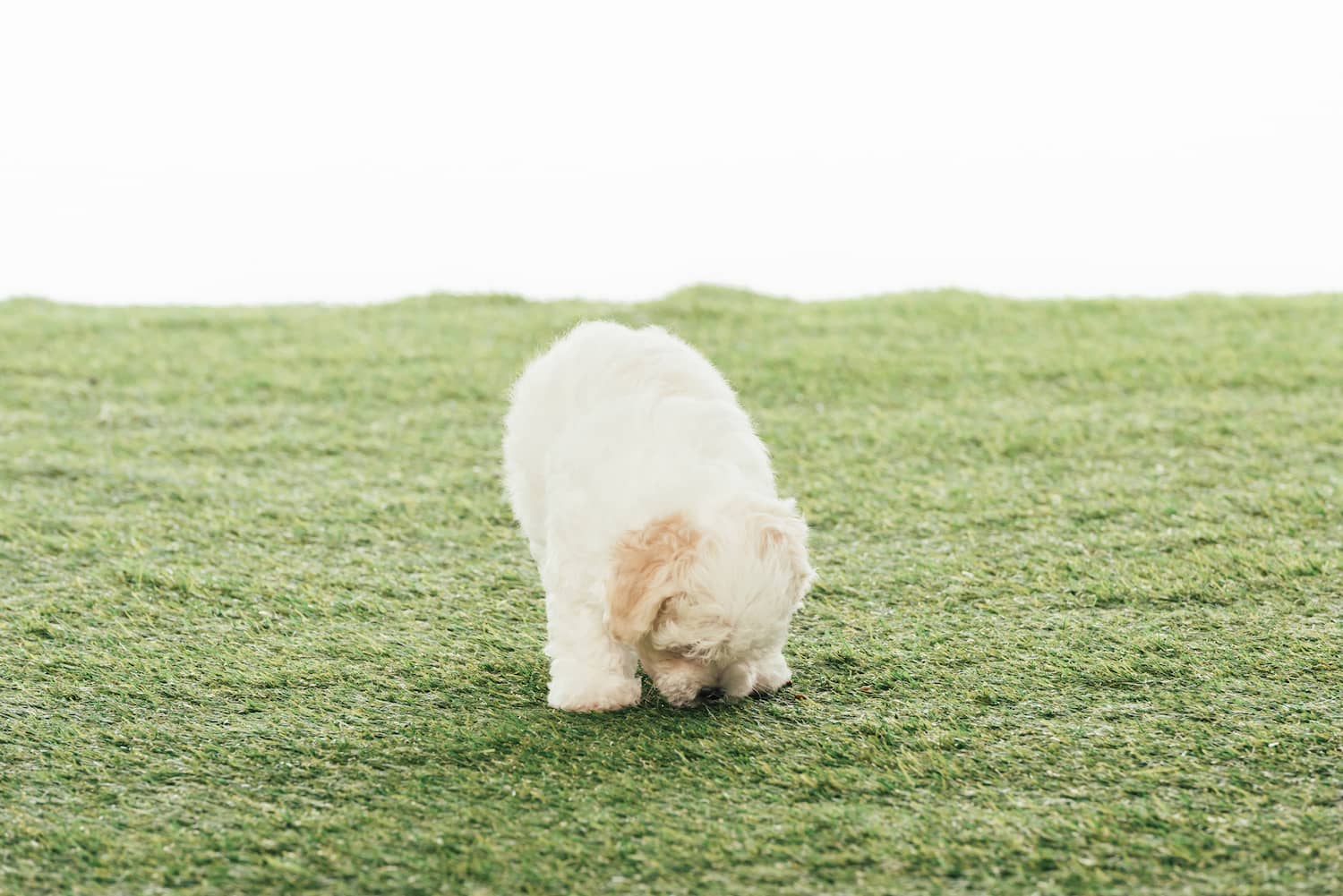Have you ever noticed your puppy eating its own feces or the feces of another animal? You’re not alone! Coprophagia in dogs, or the consumption of feces, is a disgusting but fairly common behaviour in dogs, especially puppies. But why do puppies eat their poop? While the exact cause of this behaviour is unknown, there are a few theories as to why this behaviour occurs in our furry friends. With a better understanding of coprophagia, you can help to prevent this behaviour and keep your puppy healthy and safe.
What is coprophagia in dogs?
Coprophagia is the medical term for when a dog consumes its own or another animal’s feces. This behaviour can occur in dogs of any age, gender, or breed although it is most common in puppies.
Why do puppies eat their poop? The causes of coprophagia in dogs
In most cases, puppies will eat their own poop and feces due to normal scavenging behaviour. Puppies are still learning about the world around them and may be curious about the contents of their own feces.
Nursing female dogs typically engage in coprophagia, a behaviour which likely serves to keep their den clean. Young puppies may also do this briefly, presumably to help establish gut flora. Additionally, coprophagia in puppies has been linked to several causes including attention-seeking behaviour, lack of mental stimulation or enrichment, learned behaviour from others in the household, hunger, playfulness, environmental stressors, and anxiety.
Puppies fed commercial dog food are typically on a well-balanced diet, so dietary deficiencies are not likely to be the cause of puppies eating their own feces.
In some cases, dogs can display coprophagia if they have exocrine pancreatic insufficiency (EPI) or intestinal malabsorption.
How to stop your puppy from eating its own poop
Once coprophagia has been identified, the behaviour can be managed by promptly cleaning up your puppy’s stool and ensuring your puppy is getting enough physical and mental stimulation throughout the day. Additionally, teaching your puppy commands such as leave it or drop it can help prevent coprophagia.
The addition of certain food additives has been shown to be effective in some instances, such as fresh pineapple (not canned) or For-bid™ powder. Fresh pineapple contains bromelain which has been known to reduce coprophagia. The for-bid™ powder is an anti-coprophagic agent that is added to your puppy’s food, making their feces taste bad and helping to deter coprophagia.
We typically recommend against punishing puppies for eating their own stool as some of them may learn to do it quickly in order to try and avoid punishment.
What behavioural modifying strategies can be used to prevent your puppy from eating its own feces?
There are a few behavioural strategies that can be put in place to help an owner out when their dog is exhibiting coprophagia. The most effective treatments are: avoiding the trigger, redirecting the behaviour, and response substitution.
Avoidance is the best way to prevent the issue from occurring, such as keeping the dog inside or restraining them on a leash until all other dogs in the home have relieved themselves and the grounds have been cleared. Employing muzzle training can also be beneficial in the early stages of management.
Redirection involves using a toy or treat to draw the dog's attention away if they are seen sniffing in places that have likely been fouled.
Response substitution requires teaching the pup an alternative behaviour (e.g. sitting, making eye contact) when they detect excrement and consistently reinforcing this behaviour with a desirable reward. To ensure the puppy is not bored, the environment should be enhanced, particularly with oral enrichment devices (e.g. food toys).
When should you see your veterinarian?
If coprophagia persists despite attempts to manage the situation, we would suggest consulting your veterinarian as this behaviour can be a sign of an underlying medical condition, such as exocrine pancreatic insufficiency (EPI) or intestinal malabsorption.
In addition to coprophagia, other signs that warrant further investigation include vomiting or diarrhea, changes in appetite or weight, lethargy, and poor coat quality. Your veterinarian will be able to review your dog's medical history and perform a physical examination, as well as recommend any necessary diagnostic tests.
In summary, coprophagia in puppies is usually associated with normal scavenging behaviour and can often be managed through behavioural modification techniques such as avoiding the trigger, redirecting the behaviour, and response substitution. If coprophagia persists despite attempts to manage the situation, consulting your veterinarian is recommended as it could be a sign of an underlying medical condition. By following these suggestions, coprophagia should no longer be a problem for you or your pup.


